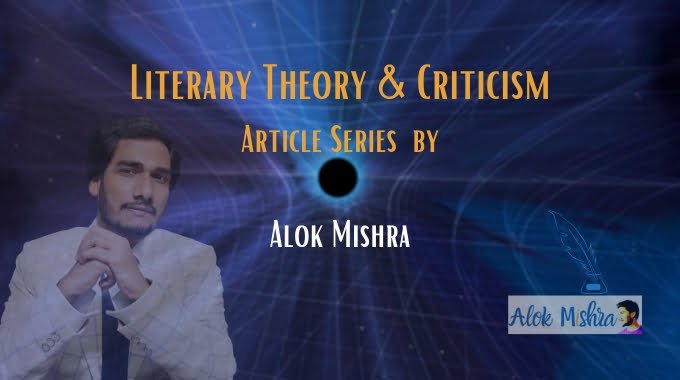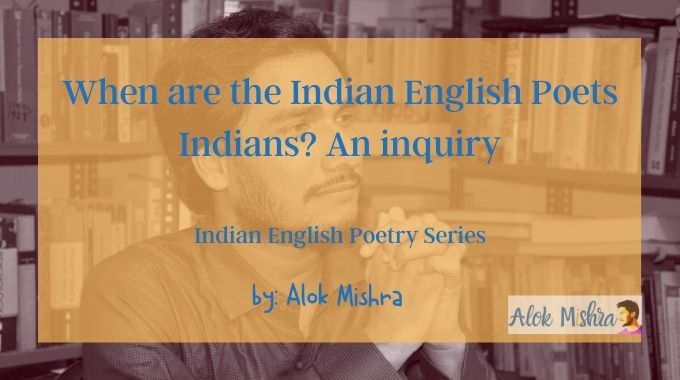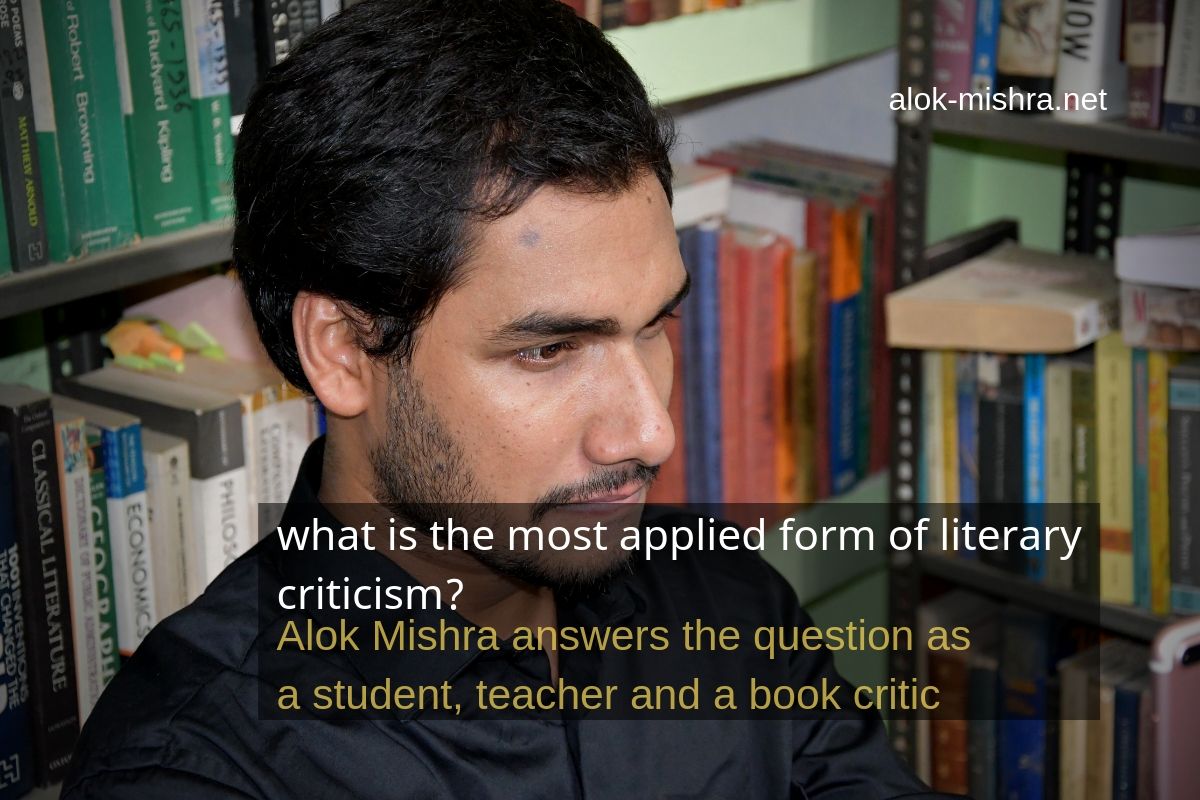My dear friends, I hope you are all doing well in this challenging situation. The…
EcoCriticism Theory in Literature: Introduction & Analysis
“The poetry of earth is never dead”
Poets die; genres change or modify; writing style sees many changes over time; literary trends might change usually… however, the poetry of earth did never die; cannot die ever! This belief of John Keats was justified. Earth has seen ages; the earth has seen civilizations emerging and dying; the earth has seen bombings; the earth has seen disasters… it still stays. Anytime you feel claimed by the rush of this modern lifestyle, you feel like retiring to your ‘farmhouse’ and spending some time in the lap of nature (am I right?). This feeling towards nature, whether reflected by the poets or the novelists, made the creative writers Romantic’ and when this feeling turned itself into a critical faculty of the intellectuals, it became Eco-Criticism (Ecocriticism) or Green Studies. There are several studies in this field which tend to highlight that it emerged as a trend in literary studies only after the 1980s in the USA and the early 1990s in the UK. So, what is EcoCriticism? What does one mean by Green Studies? What is the relevance of these terms today? Let’s analyse these aspects, and this paper is an attempt in the same direction. I hope I will be able to make it easy for the students to construe the theory and sustain what they learn here.
What is EcoCriticism?
In the simplest possible terms, ‘Eco Criticism is the study of the relationship between literature and the physical environment.’ It was proposed by the pioneer or the father of this theory in the USA, Cheryll Glotfelty. And I hope, even if this EcoCriticism or Green studies as a theory is not so popular, those who are curious about this field must be knowing it already. The study of nature as presented in the pieces of literature is what has been the playground of the people concerned with this rather new movement in literary theories. As per the term Eco-Criticism, it only came into the major play after the attempts of Cheryll Glotfelty, right after the 1989 WLA (Western Literature Association) conference. Glotfelty urged the scholars to use this term to refer to the belt of studies which was previously popular as the study of green writing. It was her effort in the USA that Eco Criticism became popular as a theory with this name. Scholars also trace it back to 1978 William Rueckert’s essay and also Karl Kroeber’s back in 1974. However, the lion’s share, no doubt, rests with Cheryll!
EcoCriticism as a literary theory:
The easiest way to understand this trend in literary theories would be to learn what these people do. As you must be aware that traditional theories in literature put emphasis either on linguistics or on the cultural and social background, the Eco-Critics put all the weight on ‘nature’ and believe that nature exists as a force which affects our evolution directly as a society. For the intellectuals involved in the development of ‘green studies’ the world is not (only, if not entirely) made of language and social ‘elements’. They tend to bring out the part that nature plays – either in writings or in general purview. However, as it entered into the field of literary theory, a part bifurcated and established itself as a solely devoted wing concerned with the (re)reading of literary texts and bringing out the role of nature, representation of nature and natural elements in the literature produced worldwide. It’s a fact that the major foci of green studies intellectuals are the regional literature of different places as we know it contains a lot of fusion of nature. Nevertheless, well-known authors, poets and literary figures always remain the central source which feeds the thoughts and findings of these studies.
What do the EcoCritics do?
Well, that’s a question I would always suggest my readers turn to Peter Barry for an answer. The book Beginning Theory by Peter Barry is a great tool, if I may say, to understand literary theories. The chapter given in the book that deals with EcoCriticism is way more advanced and comprehensive than most of the other items I have read on the subject. I will follow his style and would let you know what does an Ecocentric reader or the Eco-Critic do.
As an Eco-Critic, a person would:
1. Read or re-read the major as well as other works of literature with a viewfinder to trace the natural representation in the writing.
2. Praise the authors, poets and intellectuals who put nature on a higher pedestal than other themes.
3. Give importance to the writings with an eco-centric perspective, such as, travel memoirs, essays about places, intellectual writings containing visual landscapes in text etc.
4. Not conform to the traditional notions of literary theory that suggests linguistic or social build and thus walking through the classic lane of ‘world beyond ourselves’.
Now, I will try to simplify the works of the Eco-Critics. They don’t simply give importance and read the literature from an ecocentric perspective. They look for the natural representation, no doubt, but, in rather a larger perspective. Life in proportion to nature, human civilization along with nature, the importance of natural resources in our lives, our deeds which harm the ecological balance, wars and their adverse effect on our society, and many other things come within the purview of an ecocentric reading of literature. As rightly observed by Peter Barry:
“The ecocentric reading, by contrast, focuses outside, on the house and its environs, rather than the inside, on the owner and his psychology.”
The practices of ecocriticism tend to give more importance to the people like Wordsworth, Walt Whitman, Thomas Hardy and other Romantic Poets (mostly British). There is a public domain understanding behind this because we all know these literary figures gave more importance to nature and its role in life than any other thing. Wordsworth, for instance, always subscribed to the notion that nature is the best teacher. His seminal work, Prelude, is full of the illustrious role of nature in human upbringing. Ecocritics work to trace those examples and present it to the common readers.
As a reader or a student curious about the theory of Ecocriticism, you can also work out to bring out the most exemplary instances. For a simple instance, suppose the novels of Thomas Hardy, Under the Greenwood Tree, Far from the Madding Crowd and others as your subject. His novels are also called the Wessex Novels. His novels are set in the lap of nature and you will see it playing an important role. His characters grow with nature, mature with nature and eventually die with it. In simple terms, nature, as an active force in our lives, is permanent and our life is ephemeral in a sense! Thus, giving more importance to nature and preserving it becomes our moral duty. Another great example of the permanence of nature is the poem Rainbow by William Wordsworth. I will let the task of inquiring into it and bringing out the element which suggests nature is permanent to you. Hope you will find it easily.
Major figures in the field:
Jonathan Bate (considered widely as the father of Ecocriticism in England)
Cheryll Glotfelty (father of Ecocriticism in the USA)
Laurence Coupe
Patrick D Murphy
Important books:
The Green Studies Reader: From Romanticism to Ecocriticism by Laurence Coupe
The Song of the Earth by Jonathan Bate
The Ecocriticism Reader: Landmarks in Literary Ecology by Cheryll Glotfelty
Literature of Nature: An International Source-book by Patrick D. Murphy
What is Nature? Culture, Politics, and the Non-Human by Kate Soper
Want something more? I have written answers to various questions related to Ecocriticism for English Literature Education and I am sure you will have many things to know here: Ecocriticism as a literary theory
Had your read? I hope I made it easy for you. Here are other articles that I have done on various literary theories and you will certainly like them as well.
and for Indian students of English Literature:
Tips for UGC NET – English Literature
and for all:




Sir can you refer me some novel having following themes:natural representation , ecocriticism, i shall be very greatful thanks
Hi Alok your write up has indeed helped me understand ecocriticism as a literary theory. I will like to know the if this theory could also be considered a militant ideology. What is the dividing line between the two?
Hello , Thanks for sharing us this article. And I have a question. Do you think eceofeminism is a literary theory?
Hello!
Your article is really nice and very helpful!
Thank you for sharing…
I have a question-
Eco- Criticism deals with environmental concerns only or this theory can be applied to all nature poetry??
Please reply…
Thank You!!
recently, i have got an interest on this green theory. i am a student of english literature. i am thinking of doing phd on this very green theory. can you suggest me? what shall i do? is it my good decision? does it have prospects or not?
I’ve done my mphil thesis on green study
Hey, Toby! Thanks for letting us know that. What was your topic? It’d be useful for others if you could share your topic and your findings. Thanks!
Well done sir,may i get a research proposal;(sample copy)on eco criticism…
Hi, Samim. What is your research title? What are you planning with Ecocriticism? A proposal depends on various inputs and once I know all those, I will certainly assist you with this.
Brilliant job
Thanks for the read and comment, Maria! All the best for your further studies into the field of Ecocriticism.
Very informative.thanyou alok
Good morning, Dr Chitra! Thanks for your time and all the best!
Who are the proponent of ecocriticism…
Hey Evier, you must read the section that says ‘major figures in the field of Ecocriticism’. They are the very guys you can call proponents of Ecocriticism.
Your article was good.. Please provide something on Spivak..it will be of great help to students and teachers.
Thank you Alok Sir it helped me a lot….☺
I’m oblized to praise you.
Very simple words with effective knowledge.
Thanks a lot.
Thanks, Harsh! I am happy it could be of your use. All the best for further explorations in this field!
Could you please tell me about the concept of ‘nature as a victim’ in ecocriticism and about any references material .Am working on that topic for my project couldn’t find much about the concept…..
Anitta, that’s a new concept being floated by a few of the critics. When it comes to finding examples, it’s a different case in terms of literature. Here, we can easily discover the possibilities and ascribe our assumptions if we can back them duly with our arguments and facts. Suppose you find instances of people living in forests in the lap of nature (As You Like It), you can also find loopholes by the dramatists, authors (in other cases) and poets which will lead you to the discovery of their heavy dependence on natural resources, sometimes unripe. Though I am not sure how much I have in my memory right now, I will try to discover and will share my finding here.
Excellent Alok, Great effort n vry useful for an inquisitive reader of literature n theory like me.Thnq so much.Isn’t Vandana Guru who has authored ‘Staying Alive’ an eco-critic from India?
Hii Alok ji. This article will help me for my research paper. Thank you so much. But I have two questions about ecocriticism.
1. What is difference between ecocriticism & Eco literature?
2. Nature related any writing (asthetic) is analysis in ecocriticism point of view?
This two questions create confuse in my mind. Plz you help me!
Hii Alok ji. This article will help me for my research paper. Thank you so much, but I have two questions about ecocriticism.
1. What is difference between ecocriticism & Eco literature?
2.Nature related any writing (asthetic) is analysis in ecocriticism point of view?
This two questions create confuse in my mind. Plz you understand me
Hi alok ji .this article is very easy to know about the ecology.i think it will help me for my project paper.thank u.
Great that the article helped you, Pratikshya! All the best for your paper!
can we apply eco criticism on dalit literature especially on dalit autobiographies that how upper caste exploits the lower caste with their control over natural sources. plz reply me with your ideas.
Hi Kuldeep! Though your idea is innovative and good, it might be difficult finding substance for this research. Mostly, in India, the control over natural resources lies with the authorities and thus, subsequently, with politicians. Most of them, at times, come from Dalit classes themselves and then, logically, it will be “Privileged Dalits” exploiting “poor Dalits” if you get what I mean.
Thanks
hi Alok, please try to mention the references and Bibliography of such content too.
Hi there, Saima! Thanks for the suggestion. I will try to keep that in mind next time I write something like this. 🙂
Thanks Alok, your views have enlightened me on the subject.
Most welcome, Sabiha! All the best as you move deeper into the study of Ecocriticism!
It’s really very useful and find it very plz upload on post colonial Ur efforts are superb
Dear Tulan, thanks for your time reading the article! I will surely do something on Post-Colonial very soon!
I wish u would have mentioned Harold Fromm too
But this work of yours helped me a lot thanks a ton m
Can u also provide such an essay on Gayatri spivak essay on feminism and critical theory
Dear Anmara, thanks for pointing out that name. However, Harold is relatively new to the readers who are just beginning. Nonetheless, I would surely update the article when the time is good and I will include the name suggested by you. Thanks for that, again! I am planning an essay on Gayatri and when I do, you will get to know that. Have a good time!
A very good read on eco criticism. Gave s lot of insights into the subject.Now, my clarification. Cant we apply this theory for land exploitation land grabing,farmers denied of their rightful ownership ,adivasis driven out of their habitat for constructing factories and dams and polluting the environment with poisonous gases and chemicals.Whats your response.
You can apply this theory the way you want, Joseph. However, at the same time, you need to be aware of the allowed ‘intrusion’ of politics and the development paradox in the raw theory of ecocritical approach. Gases and chemicals are bad for ecology. At the same time, a necessary evil for the modern world because we have to live with the inventions we created! So, you have the liberty to widen the dimensions because literature is not limited. At the same time, stretching the string my break it too.
Very useful sir thanx.
great work.
Thanks, Shitemi!
I love it! Very useful. Thank you sir.
You are most welcome, Rebecca! Thanks for your read and then these words!
very useful and thought provoking. i have been writing poems on ecology in urdu without being aware of this branch of criticism. i will like to write a book with special reference to urdu writings both in prose and poetrtythis concern for the environment is nor new to the writers in indian languages also. i will take all these refrences and see how big they are. arman najmi
Thanks for the read, Arman! And I wish you all the best with your book. I will be glad reading your poems!
Great article, helped me with my project thankyou 🙂
Hey Allessandra, thanks for the upvote! You are most welcome!
Very Well explored and noteworthy article on ecocriticism. Worthreading.
Hi Dr Priya,
thanks for the read! I appreciate your time and also the comment!
simple and comprehensive article on Eco-criticism and the concept of ecocritic …..
Dr.A.Uma Devi
Dear Prof. Uma,
thanks for giving my article a read and your appreciation means a lot!
An assignment was given to me under this discipline which requires the tenants as well as strength and weekness of eco criticism and if possible a poetry or prose should be use to reference the concept.
Hi Alok, It was so intersting reading about Eco Criticism. I am higly interested in it.
Do you recognise other author in European lietrature yo suggest to read?
It is definitely a new perspective studing literature, don’t you think???
Is it possible to create a module about it?
many thanks
laura
Hi Laura,
thanks for the time you have given to this article. There are many authors in European literature whom you might bracket into Ecocriticsm . This trend is rather new and surely interesting one! And I did not understand the later part of your comment, Would you please explain that?
Alok,
Any prominent Indian ecocritic?
Hello, SP! As of now, there is no any prominent ecocritic from India. To the far, we do have some authors who are writing with an ecological perspective or environmental concern. Some of them are Amitav Ghosh, Vikram Seth, Jayanta Mahapatra and a few others. Because in India, there is not so much the tendency of independent literary research and that’s why we do not have any of them!
Thanks
Cheryll glotfelty is a female
Of course, she is a lady. However, it does not necessarily require to be a male in order to ‘father’ a theory in any field of studies. I am not taking away her female identity by calling her ‘father’ of a theory by which I simply mean the ‘founder’ of a certain school of literary thought. Thanks for your comment!